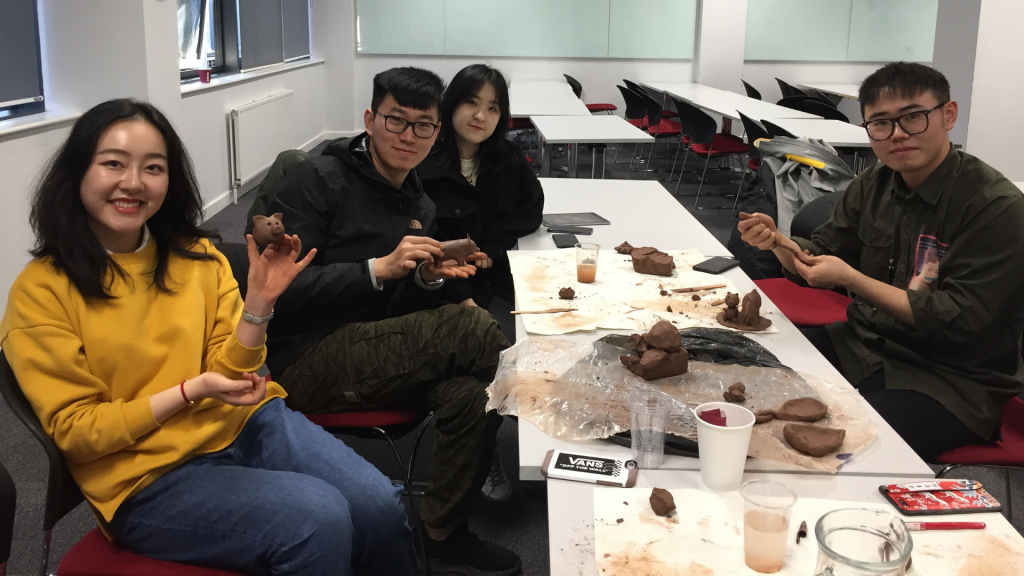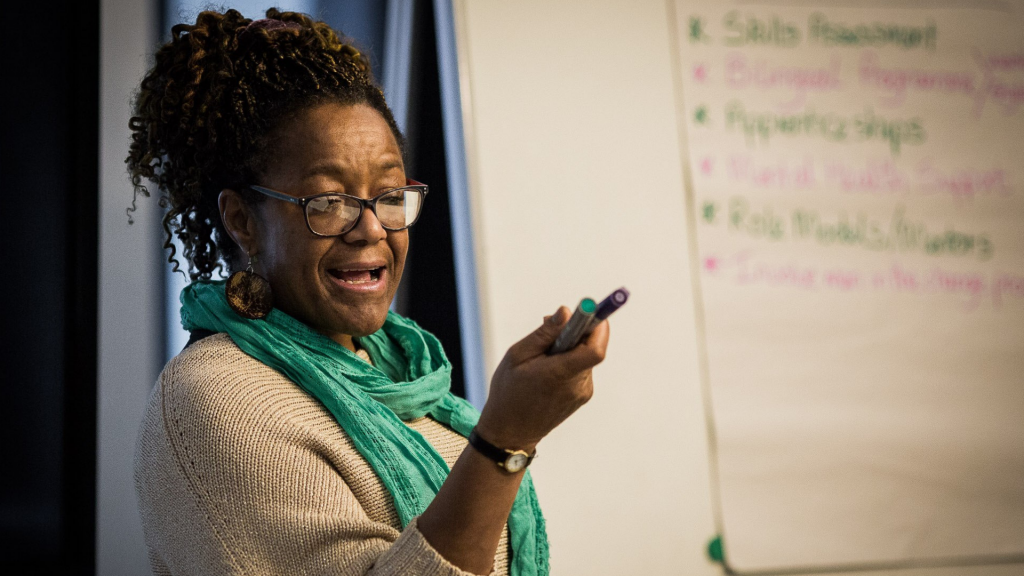Can we teach entrepreneurship?
21 February 2019
In our latest blog post, Dr Shumaila Yousafzai argues for a new approach to teaching entrepreneurship, which calls for action, practice and experimentation.
The American Professor of Entrepreneurship, Jeff Timmons, once said: “[Entrepreneurship] is not just about new companies, capital, and job formation, nor innovation, nor creativity, nor breakthroughs. It is also about fostering an ingenious human spirit and improving humankind.”
Over the last two decades, the universal emphasis on the significance and potential impact of entrepreneurship as a powerful economic force has radically increased.
And yet, the response in entrepreneurship education, that’s to say, how we teach people to pursue their own business ideas, has been somewhat lacklustre.
Instead, researchers and practitioners across the UK and the world continue to ponder whether or not entrepreneurship can be taught.
Mystery and magic

In place of this philosophising, I think we’d do well to remember American management consultant, educator, and author, Peter Drucker’s declaration on the subject.
He said: “Entrepreneurship is not magic, it is not mysterious and it has nothing to do with genes. It is a discipline. And, like any discipline, it can be taught.”
As educators, we’re lagging, and our role in encouraging the next generation of entrepreneurs to address the global challenges should not be undervalued.
Our classrooms are the perfect incubators for budding entrepreneurs.
And as for education, I maintain that it’s the perfect vehicle to redefine and amplify purposeful study and action that might lead to a better life and a better world.
Content is becoming a commodity, business management education, in general, and our role and teaching approaches as educators, our classroom interactions, are being questioned.
Make no mistake, we are being scrutinised. And the way we deliver entrepreneurship education is no exception.
Learning through action
Peter Drucker also said: “Entrepreneurship is neither a science, nor art. It is a practice.”
Today, more than ever, our role as educators should be to nurture an entrepreneurial mind-set in our students by kindling their entrepreneurial spirits and providing experiences through which the practice of entrepreneurship can occur.
Through a practice-based approach, we are able to see students lead a more entrepreneurial life, gain a predisposition for action and develop a peace with uncertainty.

We’ve started to explore these principles on the Venture Growth module of our MSc in Business Strategy and Entrepreneurship through an activity we call the ‘Resource Challenge’.
It’s an exercise adapted from Tina Seelig, Professor of Practice in the Department of Management Science and Engineering at Stanford University and is a great lesson in bootstrapping and starting something with very little.
Students quickly learn that cash or physical resources are not their greatest asset. They recognise that starting with what they have, rather than what they need, increases their probability of success.
The exercise demonstrates that value can be generated with very little and helps students to apply an entrepreneurial and creative mind-set to resource acquisition.
Think cash last
It also encourages the students, our future nascent entrepreneurs, to “think cash last”.
One of the resource challenges saw them take a bag of clay and, in groups, make money out of ornaments they moulded with the raw material.
Another resource challenge saw them launch a Valentine’s Day-related business where they were given amazon vouchers and divided into groups. Students were allowed to borrow resources from their network of friends (e.g., glue, paint, glitter etc.) or from their kitchen drawers, but they were not allowed to use money to obtain resources.

The following instructions were given to them:
- Your team can spend as much time as you want planning, but once you start trading, you have only four hours to make as much money as possible;
- You cannot participate in illegal activities;
- You cannot collect cash before or after your four-hour period;
- You cannot execute anything after your four-hour period.
In total our students raised £655.90.
The profit was donated to The Children Recovery Foundation (TCRF), an orphanage of around 300 young children in Sierra Leone.

Yaina Samuels, one of our Entrepreneurs in Residence, is closely affiliated with TCRF and has written about her passion for working on the social side of entrepreneurship on this blog, just last month.
She’s currently in Sierra Leone where she video called our students from the orphanage. Yaina reported that TCRF was able to pay half a year’s rent with the funds and also took the orphans on a day trip to the beach.
In a time when entrepreneurship education is exploding around the globe, new approaches to teaching entrepreneurship are needed, not only to keep up with demand but also, to keep up with the changing nature of entrepreneurship itself.
Dr Shumaila Yousafzai is a Reader in Entrepreneurship at Cardiff Business School.
Comments
10 comments
Comments are closed.
- March 2024
- April 2023
- August 2022
- July 2022
- April 2022
- March 2022
- February 2022
- December 2021
- October 2021
- September 2021
- May 2021
- April 2021
- March 2021
- February 2021
- January 2021
- December 2020
- November 2020
- October 2020
- September 2020
- August 2020
- July 2020
- June 2020
- May 2020
- April 2020
- March 2020
- February 2020
- January 2020
- November 2019
- October 2019
- September 2019
- August 2019
- July 2019
- June 2019
- May 2019
- April 2019
- March 2019
- February 2019
- January 2019
- December 2018
- November 2018
- October 2018
- September 2018
A wonderful blog entry – informative, probing, thought-provoking, and with an ending that shows a positive impact.
Thank you to all involved.
Thanks Rose. I hope to see more and more teachers following this approach and using the avenue of assignments and class activities as an opportunity for instilling a desire of doing something good in our students.
I thought the entrepreneur should not be teached.
all the cases we learned all based on the reflection on them.
so the only way we need to do is just do it
and we will see if it success from the future
A very insightful blog !
This program is really helpful to understand how to be an entrepreneur and what is entrepreneurship.
We through some small business to get some experiences.
Great blog, very insightful, further reiterating what I have learnt in the venture growth module this year. Thank you
Its very interesting
As a member of this class, I truly liked these Resource Challenges, they are practical, interactive and we got a chance to do actual good in the real world. I am not entirely sure that entrepreneurship can be taught, however I believe basic useful skills that are crucial for entrepreneurship can be taught! Skills like Networking, Interpersonal relationships, fundraising etc. The problem can arise if, instead of teaching these skills, Business schools instead focus on teaching high level theories about entrepreneurship that may not be easily translatable in practise when one finally launches their business.
An impresive program! I did a lot that might not happen in my college life if I miss Dr. Shumalia.
While working on dissertation all what is written in this blog comes in my mind , why not we do an entreprenurial project combining the different resources of this batch of Msc Entrepreneurship ?
Just a thought..